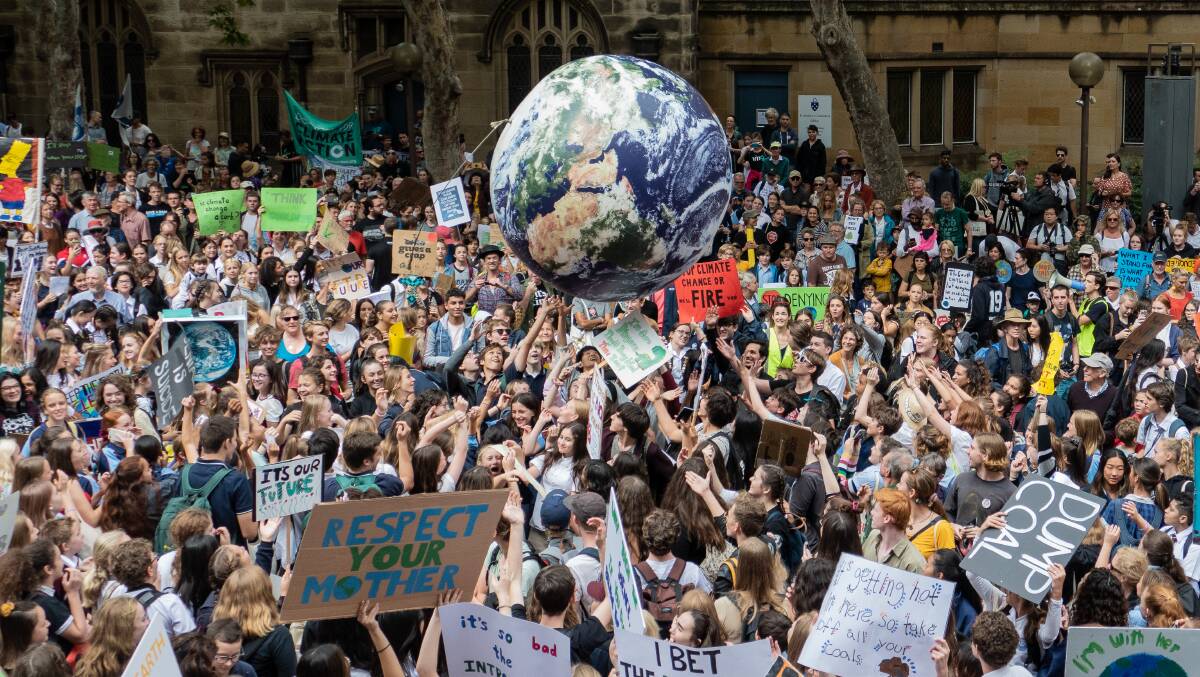
Women's voices were certainly in abundant supply in the first sitting weeks of the 47th Parliament. From the first speeches of newly elected MPs to the ground-breaking climate target bill negotiations, it was exciting and moving to hear a succession of diverse women's perspectives coming into that notoriously masculine place.
Subscribe now for unlimited access.
or signup to continue reading
In the first week, our own member for Canberra, Alicia Payne MP, delivered a powerful statement about ecofeminism, a concept which draws parallels between the oppression of women and the oppression of nature.
In tabling the #EverydayClimateCrisis Visual Petition, a collection of more than 1200 images from women and non-binary photographers around Australia, Ms Payne said: "It is very clear from the incredibly powerful images and statements in this visual petition that the unbridled exploitation of our natural world by humans is nothing short of a violence against our Earth that gives us life and sustains us, much like a mother."
The first speeches of the newly elected women in the House of Representatives also provided abundant examples of womenspeak. One after the other, from across the political spectrum, including First Nations women and women from multicultural backgrounds, they spoke of wanting a safe future for their children and grandchildren, action on climate change, repair of the environment, and a fairer, kinder and more compassionate country for all Australians.
Zoe Daniel MP, the member for Goldstein, wore white and purple - paying homage to our suffragist foremother Vida Goldstein after whom Ms Daniel's electorate of Goldstein is named. Vida was not only a suffragist but part of a worldwide pacifist movement of women whose 1915 International Congress of Women, held at The Hague during the First World War, produced a set of resolutions that today read like an agenda for the past 100 years of international human rights law reform.
And this week, women have been an outspoken influence in amending and passing the climate target bill - from the Independent women's calls for collaboration, to passionate speeches from ALP women, and Liberal MP Bridget Archer crossing the floor. In the words of Zali Steggall, "the climate wars are nearly over".
Judging by what we're seeing in the new Parliament, women are again poised to bring profound change to the policy agenda for the next 100 years - this time for the sake of our climate and future generations.
Outside the halls of political power, women have also been coming together to express their fears for the future, frustrations about entrenched systems and their ideas to safeguard the planet for generations to come.
As founder of the Women's Climate Congress - a non-partisan, women-led group formed out of the Black Summer bushfires - I have not only seen women rising in our parliaments but in communities across Australia, united in the belief that a new approach to leadership on climate change is urgently needed, moving beyond the adversarial party politics towards collaborative national action.
And in September, inspired by our predecessors during the First World War, women from across the country will come together at Canberra's Albert Hall to take part in a two-day National Congress of Women event and bring their voice to a Women's Charter for Change on climate action, which will be presented to government later this year.
READ MORE:
This event will weave together two years of work by the Women's Climate Congress, exploring the aspirations and vision of women in response to climate change, the potential for collaboration on developing a national climate policy, and the systemic shifts needed across government, business and the wider community to respond to the current climate emergency.
We're seeing how women's voices are transforming our response to climate change. But we must work quickly to develop a national action plan that we can all support, which requires listening across difference and working for consensus based on scientific advice.
Women's leadership will be critical to achieve this. Increasing the number of women in politics is a start but a profound cultural shift is needed to break the deadlock on climate action once and for all and find new ways of moving forward.
Like the resolutions of Vida Goldstein and the other women in 1915 to: 1) stop the war; and 2) establish the conditions for a sustainable peace, women today are calling for both immediate and far-sighted actions to restore climate balance and ensure the long-term safety of humans, biodiversity and the environment upon which we depend.
Working together we can reset the course of the next 100 years from repeating and increasingly debilitating climate disasters to one of climate security and renewed wellbeing.
- Janet Salisbury is the founder of the Women's Climate Congress.
- The National Congress of Women will be held on 11-12 September at the Albert Hall, Canberra. For further information, visit nationalcongressofwomen.com.

